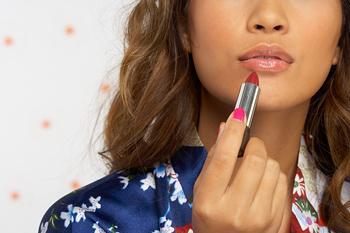Before you apply your makeup or use that personal care item, ask yourself what you know about it. What chemicals are in what you are using on your face and how safe are they?
You are doing so much to safeguard your health …eating well and getting regular exercise, but are you unknowingly adding chemicals to your body through your makeup and personal care items?
According to the Environmental Work Group (EWG), a nonprofit organization that uses public information to protect public health and the environment, the US government has no authority to require companies to test personal care products for safety before they reach the store shelf.
EWG’s research documents that 22 percent of all personal care products may contain the cancer-causing contaminant 1,4-Dioxane, and more than half of all sunscreens contain oxybenzone, a potential hormone disruptor. Other studies raise serious concerns about makeup such as lead in lipsticks and chemicals in fragrance and artificial preservatives in personal care products.
Fragrance, in particular, has become a source of concern due to the unlisted ingredients behind the scents. A study of 17 popular fragrances by the Environmental Working Group and the Campaign for Safe Cosmetics, advocacy groups focused on exposing products they deem hazardous to health, found 14 undisclosed chemicals, on average. Among them were phthalates, which are used to soften plastic and have been linked to various ailments.
The following groups of chemicals are currently being studied for links to breast cancer:
- Parabens – chemicals commonly used as preservatives in many cosmetic products, including makeup, moisturizers, hair care products, and gels.
- Phthalates – used to hold color and reduce brittleness in nail polish and hair spray. They’re also found in many personal care items.
Before you use your current makeup again, or buy a new makeup, visit the Environmental Working Group’s (EWG) Skin Deep site and check your makeup and personal care items scores. EWG lists a product’s hazard score based on the chemicals’ links to cancer, allergies, and other issues.
Source: Environmental Work Group


